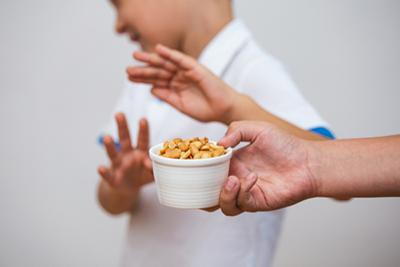
Food allergies in children are more common than you think. About 5 percent of children under the age of five have food allergies. If you are wondering if your child might be allergic to certain foods, your allergist can help.
What You Need To Know About Food Allergies
Let’s look at some of the most common foods children are allergic to. Common foods that cause allergies in children include:
- Eggs
- Milk
- Peanuts
- Wheat
- Soy
- Fish
- Shellfish
So, how do you know if your child has a food allergy? There are several common signs and symptoms to look for, including:
- Nausea and vomiting
- Diarrhea and cramps
- Hives or eczema
- Itching or swelling of the mouth, tongue, or lips
- Breathing difficulties
- Wheezing and coughing
If you notice your child experiencing any of the signs or symptoms listed above, your child could have a food allergy. Food allergies can cause life-threatening complications, including anaphylactic shock. Call 911 immediately if your child is having difficulty breathing, is turning pale, or can’t speak due to breathing problems.
The first step in treatment is to determine what your child is allergic to. Your allergy specialist can test for allergies. For food allergies, your allergy specialist may recommend:
- A challenge test, during which your child will ingest a small amount of the substance and see if there is an allergic response
- A blood test, in which a small blood sample is sent off to a laboratory for testing
Your allergy specialist may also recommend the most common type of allergy testing, which is a skin test, to determine if your child has additional allergies, other than foods. During a skin test, a small amount of allergen is placed under the skin, to determine if there is an allergic response such as swelling, redness, or itching.
Once you know what foods your child is allergic to, you can help your child avoid those foods. Your allergy specialist may also recommend:
- Allergy shots
- Sublingual immunotherapy drops
- Steroid nasal sprays and nasal lavage
- Inhalers and other breathing aids
Food substances such as peanuts are often concealed in foods, and your child may still unknowingly eat them. That’s why it’s important to always carry allergy medications including an inhaler and an epi-pen if your child has severe food allergies.
Want To Know More?
To find out more about the signs, symptoms, diagnosis, and treatment of your child’s food allergies, talk with an expert. Call your allergy specialist today.
